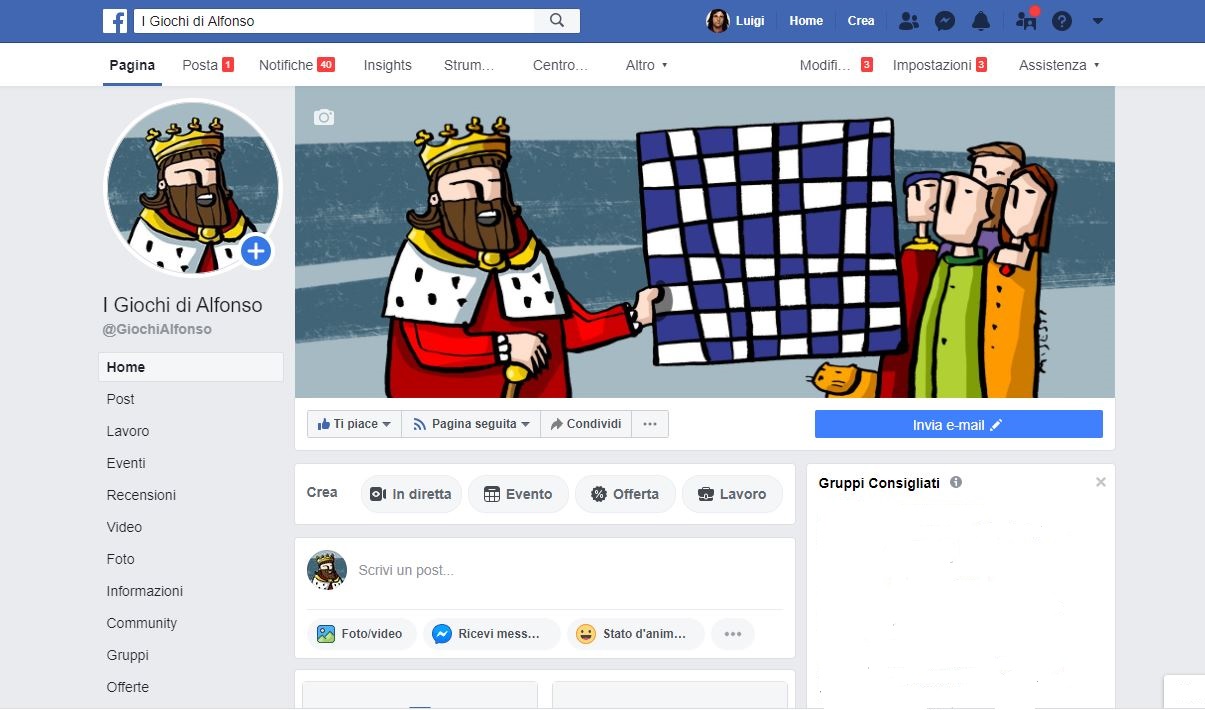 Amici di Facebook e relative teorie sociali (parte II)
Amici di Facebook e relative teorie sociali (parte II)
Amici, Facebook, rapporti di amicizia e inimicizia. Qual è il nesso con gli amici? Il principale aiuto, per migliorare i rapporti e capire chi fa al caso nostro e chi no, gli amici insomma, sorprese delle sorprese, non ci viene però “dalla madre di tutti i social network”, ovvero Facebook.
Se la più nota fra le community on line, leggi “Facebook”, ha infatti il tasto “mi piace” (“I like”), alla stessa manca il suo contrario (“non mi piace”) per distinguere amici da nemici. Il tasto doppio è presente invece, per esempio su You Tube. Quindi l’ausilio è relativo. Vi sono però alcuni social meno conosciuti, oltre al sopra citato You Tube, dove queste funzioni bifronti, ma opposte, compaiono: vedi per esempio Epinions e Sladshot, dove ai loro epigoni è concessa la possibilità di esprimere giudizi negativi sui membri della community. E i risultati sembrerebbero dare ragione alle teorie di Heider, ovvero le situazioni negative sono evitate e le comunità sociali hanno un bilanciamento positivo, così gli individui segnalati come amici o nemici da grandi gruppi di individui in connessione fra loro, quasi come le piante…
Ma il dubbio è se i giudizi espressi siano il frutto di scelte consapevoli al 100%, oppure siano influenzate dall’opinione comune di chi ha espresso giudizi prima di noi o da chi consideriamo autorevole. In attesa di venire a capo della questione, sulla base di recenti ricerche comunque si sono osservate una certa tendenza e evitare cicli negativi: come dire che il conformismo è anche un po’ nei nostri geni…
(fine)
English Version
Friends, Facebook, friendship and enmity. What is the connection? The main help, to improve relationships and understand who is right for us and who is not, what a big surprise, does not come to us “from the mother of all social networks”. If the best known among the online communities, read “Facebook”, in fact it has the “I like” button (“I like”), it lacks its opposite (“I don’t like”), present instead, for example on You Tube. So the aid is relative. There are, however, some lesser-known social networks, in addition to the aforementioned You Tube, where these two-faced, but opposite, functions appear: see for example Epinions and Sladshot, where their followers are given the opportunity to express negative judgments on members of the community. And the results would seem to give reason to Heider’s theories, that negative situations are avoided and social communities have a positive balance, so individuals reported as friends or enemies by large groups of individuals in connection with each other. But the doubt is whether the judgments made are the result of 100% conscious choices, or are influenced by the common opinion of those who have made judgments before us or by whom we consider authoritative. Waiting to settle the question, on the basis of recent research, however, a certain trend has been observed and avoiding negative cycles: how to say that conformism is also a bit in our genes …
(the end)
Latina Versio
Amici a Facebook (Repertorium) inimica amicitia. Quod ad nexum? Quod auxilium ut amplio principalis rationes et doctos disciplina, et qui est, qui facit opus pro nobis: mirum mirum, est tamen non “mater omnis socialis retiacula.” Nota Si optimum est in medio civitatis supra lineam, lege “Facebook”, ad conjunctionem habeat: “velut ” (” mihi placet “), idem est, suum oppositum missing (“ego non similis”), hic autem, quia in exemplum Vos Tube (You Tube). Igitur auxilio est ad aliquid. Sed sunt quidam luminare minus nota erant, in addition ad supra Vos Tube, ubi haec duplex features, tamen contrarium, videtur: video exempli gratia Epinions et Sladshot, ubi suos sectatores qui dedit potestatem exprimere negantem opinionem de conventu membra. Et eventus videtur concordare cum Heider sapientium placitis, vel negans habere positivum Communitates condicionum socialium et aversatur, tantum hominum, sicut alibi amicos inimicosque distribuunt hominum coetibus magnis per connexionem cum invicem. Sed quaestio est, an ex sententia eventum conscious electiones sunt C% vel opinionem illorum qui afficiuntur expresserunt nobis et judicia quem consideramus om. Exspecto ut supra de materia, secundum recentem investigationis vero tendentia et vidimus cuiusdam conformitatis, quae vitare negans circuitus, ut sit aliquantulus dicere ‘in nostrum genes …
(Finis)